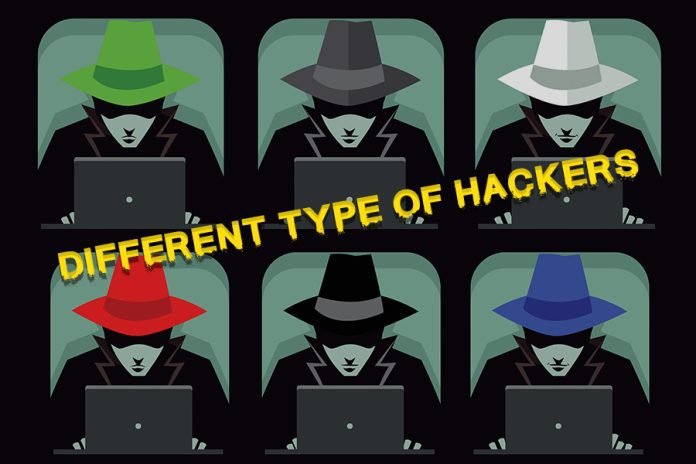Last Updated on April 15, 2023 by
Table of Contents
Introduction
When the word “hacker” hits our mind, cybercrime is the first thing that comes to our mind. Every day, we see cybercrime news flickering through the mail, social networking sites, phone numbers, and more. The world has witnessed a host of crimes through the internet and telephone, including theft, blackmail, etc. But is any of that? The villain in the cyber world is not necessarily a hacker; there are various types of hackers, usually ethical and immoral hackers. Ethical hackers hack computer systems ethically for some positive cause, as the word suggests, while an unethical hacker does the same unethically for some incorrect motives. In this article, we will discuss, types of hackers, how many types of hackers are there, and hacker meaning.
What is a hacker?
Hacker meaning: A hacker is a person who uses a computer, networking, or other skills to solve a technical problem. Anyone with technical skills may refer to the term hacker. Still, it also refers to a person who uses his or her ability to gain unauthorized access to systems or networks to commit crimes. The word hacker has historically been a controversial one, often used as a term of praise for a person who demonstrates a high level of skill as well as ingenuity in his or her approach to technological problems. However, the term is more commonly applied to an individual who uses this skill for illegal or unethical purposes.
Types of hackers
Different Types of hackers are:
White Hat Hackers:
A white-hat hacker is a person who breaks into information or security systems ethically. With malicious intent, they do not derive data but do it for ethical reasons. In organizations, they are designated as security experts. To derive data that is useful for the organization, they take various measures and shields to break information systems. They are legally allowed to do the same and are frequently referred to as ethical hackers. In fact, one of the popular IT security certificates offered to security professionals is professional certificates that certify one as a Certified Ethical Hacker. The demand for ethical hackers is increasing by the day, with the growing number of cyber threats.
Black Hat Hackers:
Black hat hackers are called crackers. Black hat hackers are the ones who, as opposed to white hat hackers, break into information systems with malicious intent. They dig into the computer system, phone system, account, etc., of others and obtain details that can harm the owner. The result of black hat hackers is a lot of cyber-crimes. They use individuals’ private data to cause offences such as robbery, fraud, vandalism, and more. Since these groups of hackers are unethical, the law punishes them for crimes they commit.
Grey Hat Hackers:
Both white and black hat hacker characteristics are exhibited by a grey hat hacker. Typically, these types of hackers dig unethically into other systems while causing no such malicious damage. Many grey hat hackers break into the account and information systems of others, pull in information, and notify the administrator of the mishap. Also, they offer to fix the issue for a certain fee. So, they are the ones who hack the systems of others to fix it later to earn some income.
Elite Hacker:
As there are technology masters, there are also hacker masters. Hackers from Elite fall into this category. Elite hacker is an indebted social designation to hackers who are most skilled in hacking. They have professional expertise in breaking into information systems and easily extracting data and information from them. In both white hat hacking and black hat hacking, elite hackers can utilize their expert skills.
Script Kiddie:
A script kiddie is someone in the field that is an amateur. He or she does not break into the systems of others through their abilities, but to do the same, they use automated scripts—the use of tools and software for breaking into information systems prepared by other hackers. Thus, in the IT security world, there are different types of hackers who work for different purposes. Although the job of everyone is to break into the system of others and derive data, they do it for different purposes, and the purpose makes them different from each other.
There is a cybersecurity aspect of every role within IT. A world of options opens up by focusing on security as your primary role. Within cybersecurity, there are as many roles as lines of code running in your browser, from security operations to risk assessments to application security to investigations to educator compliance. That’s why the person who is qualified with cybersecurity courses can prevent their user data from these hackers.
Conclusion
A Hacker is an individual who is intensely interested in any computer operating system’s mysterious workings. Most often, hackers are programmers. They gather advanced knowledge of operating systems and languages of programming and discover loopholes and the reasons for such loopholes within systems. You must have a clear idea by now that not all hackers are identical. Sure, some hackers are bad guys who exploit other people and companies using their technical skills. But there are also other types of hackers who work to protect us from those evil hackers’ day and night. Some hackers even employ an aggressive approach to destroy the notorious black hat hackers to some extent.



























